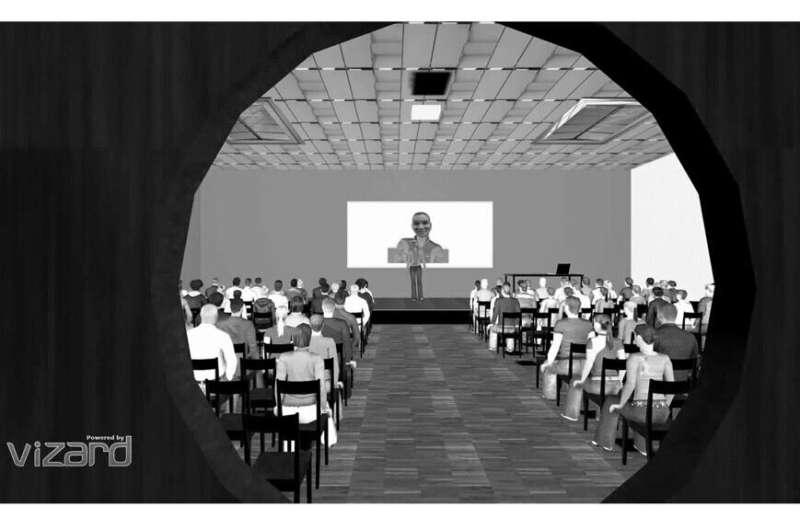
A team of researchers from the University of Lausanne and Ecole Polytechnique Fédérale de Lausanne, both in Switzerland, has found that men improve their speech-giving skills after watching a doppelganger of themselves give a speech. They have published a paper describing their findings on the open access site PLOS ONE.
Prior research has shown that confidence in one’s own abilities can play an important role in performance when giving a speech in front of other people. In this new effort, the researchers have found a technical tool that can improve speech-giving skills for some people by boosting their confidence.
The work involved an experiment involving university student volunteers. Each subject filled out a questionnaire meant to assess confidence and self-perceived speech-giving abilities. Each volunteer was also asked about their level of anxiety when giving speeches and how much public speaking experience they had. Next, the researchers took photographs of each of the volunteers and used the results to create virtual-reality doppelgangers. After that, the volunteers were divided into two groups: Each member of one group spent time interacting with their virtual doppelganger; members of the other group did the same with a generic avatar.
Next, the volunteers were asked to give a three-minute speech in a virtual reality room with a virtual crowd in attendance about their thoughts on the university fee structure. The researchers judged the quality of the speech based on body language, not content. Afterward, the volunteer was allowed to watch the speech they had just made, with their doppelganger giving the speech or a generic avatar giving the speech.
The last step in the experiment involved allowing each volunteer to give the speech again under the same conditions. Once again, the researchers judged the effectiveness of the speech based on body language.
Source: Read Full Article
